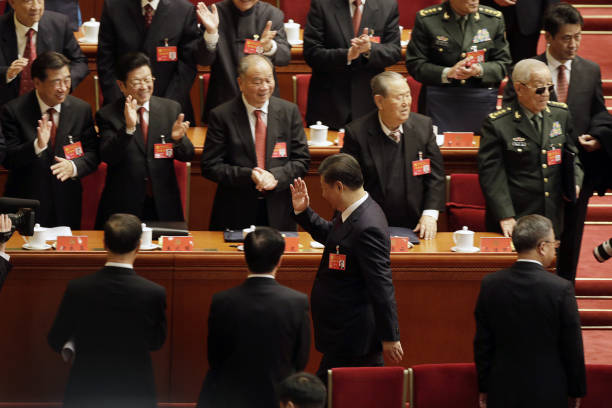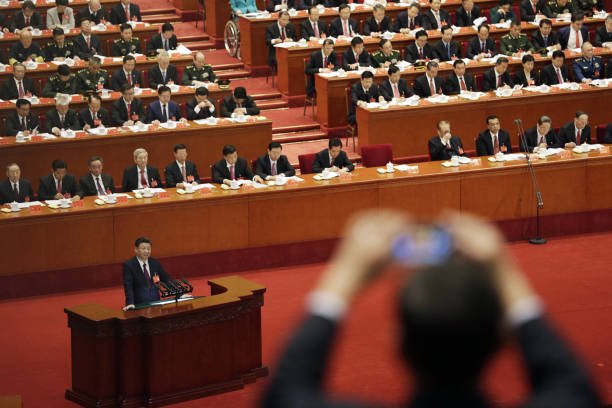RISING BACKLASH AGAINST CHINESE INFLUENCE

China has risen substantially and impressively over the last generation; moving beyond the periphery, it has established itself at the centre of the global system and created enormous wealth and power thereby. However the strategic atmosphere that has aided China's "lay low" approach to international affairs and flourished its economy is failing and brewing a negative trajectory.
Beijing's foreign policy under Xi jinping has assumed an increasingly assertive and high profile tone: the exact sort avoided by Xi's predecessors. Now, countries that engaged Chinese investments are advancing against Beijing's influence.
The global atmosphere that indulged China's rise was at the discontinuance of the Cold war. The fall of the Soviet union engaged the eagerness of the West in general and America in particular to add more countries to the newly created world order. The 1990s witnessed faith in the liberalising triumph and power of commerce over Soviet socialism. This caused most Western capitals to ignore China's authoritarian model.
The United states particularly aided China's ascent to the World trade organization, ultimately igniting China's economic growth. 21st century America is focused strategically on Islamic terrorism and the middle east while europe is occupied with euro and stability in the European Union. However, Japan's focus on Chinese power ambition has remained solid.
During this happenings, China's game was skilful. In earlier decades when Chinese economic reform project started, Deng Xiaoping entreated latter generation of leaders to maintain low international profiles. His "hide brightness, cultivate obscurity" tactics avoided blandishment of power in order to protect Chinese efforts from premature outside scrutiny.

China, thus, focused on commerce and investment with a "win win" approach that attracted more friends. At the UN, chinese approach was to allow Russia take the lead on Western activities that generated dispute. China presented itself positively during global backlash against the Iraq war and launched China-Europe strategic partnership in 2003. The emergence of BRIC forum for developing economies in 2009 extended the argument of China's reliability to many developing countries. Despite its increasing wealth and power, Beijing mustered enough unclear intentions that frustated skeptics in partner nations. This expansion continued expansively.
This past 5 years have shortlived all of these. International military bases, high profile drills, parades and standoff with neighbouring nations and boggling proposals have replaced obscurity previously advanced. Propelled by large state subsidized loans, chinese firms plunged into the international market scooping up major brands like GE and Volvo to the fear and suspicions of Chinese commercial influence among some Western legislators.
In Africa also, there is rising tension that Chinese facade of partnership or investment is nothing but a veil to extend its political influence and import unfair trade practices particularly in resource-rich nations.
President Xi has accentuated this changes after strengthening his political grip within the Communist party in 2017. The United Work Front division of the Communist party has started executing its behavioural guidelines for Chinese university students studying abroad. Chinese scholars at the University of California confirmed that a department of Chinese ministry of Education has stopped its funding after a university ceremony where Dalai Lama was invited to speak- a measure Beijing interpretes will subside viewpoints contrary to the Communist party doctrine. Finally, Xi's signature "one belt, one road" infrastructure initiative, a term culled for hundreds of billion projected for outbound investments has led to recent Chinese seizure of a Sri Lanka port after local entities defaulted on difficult terms China demanded. There was substantial local outcry that created a rift in the China-Sri Lanka cooperation and serve to warn countries welcoming Chinese investments.
China under Xi jinping has assumed an assertive and swaggering power with little regard of how such actions are perceived internationally. The nationalist rhetoric employed suggest that these actions are judged to be in the party's interest while also reinforcing domestic standing. In the United States, harsher languages in its new strategic directives admit bubbling anti-china trade sentiments. There have also been substantial skepticism among Australian and Canadian politicians of Chinese domestic involvement.
Even close allies like Pakistan, covered by Chinese infrastructure initative are experiencing under-delivery from China. China has abruptly stopped funding for three major roads within the China-Pakistani Economic Corridor network. And this week, French President Macron made a cautionary note to China affirming that its projects "cannot be those of a new hegemony, which will transform those that they cross into vassals." Other such resistance to Chinese projects might erupt.
Modern China is new to contemporaneous suspicion of its objectives both in developing countries and in the West. Chinese diplomacy is more apt at dispelling criticism not engaging them while strict protection of the party's core values are imperative. This is unassuming for a country that has began legitimizing diplomatic interests around the globe. China's response to this backlash will ultimately decide its position and role its capable of.